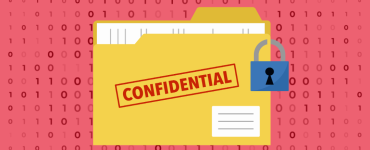Open-source AI models, without training with customer data, hosted on European servers and individually tailored to the needs of SMEs. These are ways to use AI in companies in a manner that complies with data protection regulations and is legally compliant.
Andreas Bachmann, CEO and co-founder of eco member Adacor, shares in an interview how small and medium-sized enterprises (SMEs) can become even smarter in a sovereign way.
According to a recent eco study, only 18 per cent of companies that use some form of cloud (public or private) or colocation infrastructure are using it for (generative) AI. What are small and medium-sized enterprises (SMEs) that have not yet integrated AI into their processes missing out on?
SMEs that refrain from using AI risk leaving efficiency potential untapped and losing competitiveness. Modern AI solutions – such as intelligent assistants or data analysis tools – enable knowledge to be used more effectively, processes to be accelerated through automation, and decisions to be made based on data.
Reluctance to embrace AI certainly carries risks. Companies will fall behind if they do not actively and, above all, early on help shape the key technologies of the future.
Why is artificial intelligence still so rare, especially in SMEs? What are SMEs afraid of – technological, legal or cultural barriers?
Many SMEs are hesitant due to regulatory uncertainty, data protection concerns and, above all, a lack of expertise. The good news is that no ‘big data’ infrastructure is required. Modern, independently operated AI solutions such as our Adacor AI Workplace (only available in German for now) show how companies can use AI profitably even without huge amounts of data or complicated infrastructure – quickly and securely, even for SMEs. AI can now act as a productive teammate in companies – for example, as intelligent assistants that automatically process information and perform in-depth analyses.
The EU’s AI Act has been gradually coming into force since February, which means that companies using AI must now train certain skills. How do you assess the role of AI regulation for SMEs?
European AI regulation, in particular the AI Act, is an important step towards creating legal certainty for the use of AI. As the managing director of an SME, I am naturally also directly confronted with liability issues when using AI. The EU AI Act now provides me with important guidelines on what I need to do to minimise this liability.
On the other hand, the EU AI Act is a complicated and comprehensive regulation. For many SMEs, it therefore also means uncertainty, as technical complexity and legal requirements are difficult to understand.
This makes sovereign solutions all the more important. They support companies in using AI in a data protection-compliant and legally secure manner without having to delve deeply into regulatory details themselves.
The eco initiative AI in Practice has developed a helpful guide to implementing the EU AI Act. The guide is now available in German and the English version will be published later this year.
The AI industry had its ‘iPhone moment’ in November 2022 with ChatGPT. There are now thousands of AI tools that rely on generative AI. Does ChatGPT still have a special position or is it now obsolete?
ChatGPT was indeed a game changer – but today there are many specialised tools available. Unfortunately, many – especially start-ups – offer nothing more than ‘wrappers’, i.e. a kind of customisable user interface for ChatGPT or Azure OpenAI. I question the added value and long-term viability of this business model. For companies, data protection-compliant, private models such as those we provide in the AI Workplace are crucial – individual, secure and tailored to company processes.
What solutions do SMEs need? Where does your AI Workplace come in?
SMEs need practical, secure and integrable solutions – this is exactly where our solution comes in: understanding documents, generating content, analysing data and automating internal workflows. All in a GDPR-compliant environment, without dependence on US providers.
‘Secure’ here means not only no US providers and no training of the models with my own data, but also consideration of availability, monitoring, quality control, backup and security. These are all issues that are often not directly considered in many AI pilot projects, but which we are very familiar with thanks to our history of over 20 years in managed hosting.
How can SMEs ensure that their data is not only available for use with AI, but also of high quality and legally compliant?
Data must be structured, accessible and quality-assured – and its use must be transparently regulated. Our approach is based on explicitly not training on customer data, following strict technical and organisational measures (TOMs), and hosting in German data centres.
On the customer side, we develop a data concept – if one does not already exist – which regulates the categorisation of data, defines responsibilities and integrates a deletion concept. Fortunately, these are not new issues.
The eco Association is calling for the targeted promotion of open source AI models, European computing capacities and the development of specialised models. Where do you see Germany’s opportunity to put AI into practice?
New providers and models such as Deepseek R1 show that the race is far from over. Germany has the opportunity to create a counterweight to US services with sovereign, open AI approaches such as the Teuken models from the Fraunhofer Institute and European computing infrastructure. Open source models, private clouds and strong partnerships with SMEs are the key to success here.
It will be particularly exciting for companies that already work with AI applications such as ChatGPT. With our open-source models hosted on our own GPU clusters, we offer a GDPR-compliant, Germany-hosted alternative to ChatGPT. Since the models can be seamlessly integrated via API, our solution is particularly attractive for traditional SMEs as well as specialised software companies and agencies. This is especially true if the latter already use OpenAI’s interface with their applications.
About the company:
Adacor Hosting GmbH has been supporting SMEs in their digital transformation since 2003, with a focus on cloud computing and artificial intelligence. The company has extensive expertise in the design of modern IT architectures, the operation of critical infrastructures for regulated industries and the implementation of sovereign AI solutions operated in Germany. Further information: https://www.adacor.com




